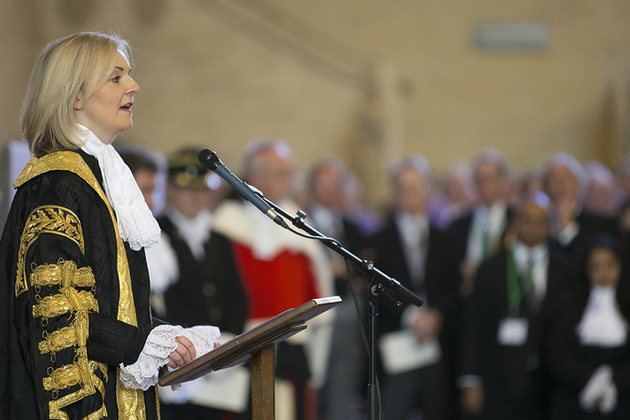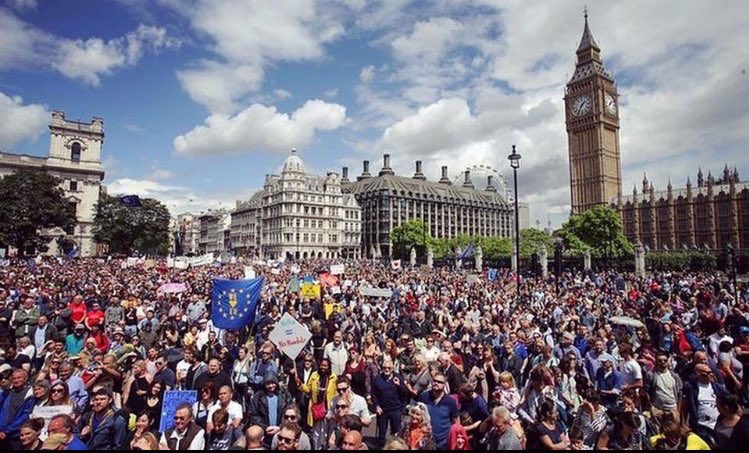Weekly Notes: legal news from ICLR — 27 March 2017
This week’s roundup of legal news and commentary includes terrorism, politics, and the judiciary, plus transparency in the family courts and an exciting new development at ICLR. Judiciary LCJ v LC Who will stand up for the judiciary? A row has erupted between the Lord Chief Justice and the Lord Chancellor over the… Continue reading
This week’s roundup of legal news and commentary includes terrorism, politics, and the judiciary, plus transparency in the family courts and an exciting new development at ICLR.
Judiciary
LCJ v LC
Who will stand up for the judiciary? A row has erupted between the Lord Chief Justice and the Lord Chancellor over the extent of the constitutional duty of the latter to protect and defend the judiciary, of which the former is head.
Each of them has recently given evidence to the House of Lords Constitution Committee. Liz Truss, speaking as the Lord Chancellor and Secretary of State for Justice, told the committee that, while she had enormous respect for the integrity of our judiciary, and was a ‘huge believer’ in their independence, she did not think that included curtailing freedom of the press.
Where perhaps I might respectfully disagree with some who have asked me to condemn what the press are writing, is that I think it is dangerous for a government Minister to say this is an acceptable headline and this is not.
She said much the same thing in her recent interview on Law in Action (see Weekly Notes – 13 March 2017). The problem is that no one was asking her to censor the press. They were asking her to fulfil her particular constitutional duty, as Lord Chancellor, to defend the independence of the judiciary. Yet last year, when called upon to do so, she had been very slow to respond to press attacks on the judiciary, notably by the Daily Mail in describing the Lord Chief Justice and his fellow judges hearing the Miller ‘article 50’ case in the High Court as ‘Enemies of the People’.
When it was his turn to give evidence to the committee, Lord Thomas of Cwmgiedd, the Lord Chief Justice, subjected Truss to what one commentator described as ‘extraordinary’ and ‘excoriating’ criticism. She was, said Lord Thomas, ‘completely and utterly wrong’ in adopting the position, when called upon to defend the judiciary against attacks in the press, that it was not for her as a government minister to censor the press.
Professor Mark Elliott, writing on his Public Law for Everyone blog, points out that
First, no-one had suggested that government Ministers should purport to wield powers of censorship by telling the press what it is and is not ‘acceptable’ for them to print. Rather, the concern was that the Lord Chancellor should have responded more promptly and more robustly to what had been printed — not by questioning newspapers’ right to publish such comments, but by rebutting them and in so doing defending the independence of the judiciary.
Secondly, as Lord Chancellor, she is not merely a government minister:
While section 3 of the Constitutional Reform Act 2005 charges all Ministers of the Crown with responsibility for upholding the independence of the judiciary, it singles out the Lord Chancellor who, uniquely, is placed under a specific obligation to ‘have regard to the need to defend that independence’. This is underscored by section 1, which affirms that the changes made by the 2005 Act do not extend to ‘adversely affect[ing]’ the Lord Chancellor’s ‘existing constitutional role in relation to [the rule of law]’.
That existing constitutional role included, of course, standing up for the judiciary. (As she swore to do so on being appointed: see her speech.)
You can read the transcript of the Lord Chief Justice’s committee session or watch the video.
See also, Obiter J, Law and Lawyers blog: Lord Chancellor was “completely and utterly wrong”
However, not everyone agrees that the Lord Chancellor was at fault. Penelope Gibbs, on the Transform Justice blog, (Should the judiciary speak out more?) suggested that the role of the Lord Chancellor since the Constitutional Reform Act 2005 had changed and that the strict ‘Kilmuir rules’ about judges not being able to speak out in public had been abolished.
However, she acknowledges that only the most senior judges were allowed to make speeches or speak to the press. Most district, Crown Court and High Court judges are still inhibited from speaking out, even to explain their work, partly because it is so difficult for them to get permission to do so.
When asked, in an exchange of tweets, whether that was something the Lord Chancellor should redress, she replied that it was the senior judiciary who imposed those restrictions.
However, another factor inhibiting judges from speaking out must be the hysterical reaction in the press and others (including politicians) the minute they do so, as was demonstrated yet again this week, when the Director of Public Prosecutions attacked a judge for some remarks about rape cases: see Guardian, DPP accuses judge of ‘victim-blaming’ in sex assault cases
See also what happened when HHJ Lindsey Kushner Q.C. offered constructive remarks on this topic (Weekly Notes – 13 March 2017 again).
Judicial roles reviewed
The role of the judiciary has been discussed in two recent speeches by members of the UK Supreme Court (who do seem to be allowed to speak out as much as they like). They are well worth reading in the context of what seems to be a lack of understanding – among politicians and the media, if not the general public.
Speaking In the Bahamas, while their Lordships were sitting there last month as the Judicial Committee of the Privy Council, Lord Mance discussed The Role of Judges in a Representative Democracy.
The subject was topical, in light of the recent hearings of federal courts in America on the constitutionality of President Trump’s notorious ‘travel ban’ executive order. ‘The judiciary,’ he said, ‘is the third pillar of the state’, which supports and respects but also keeps in check the other two (the legislature and the executive). Its independence – the separate of powers – is critical. He goes on to discuss the extent to which judges make the [common] law, rather than simply declare it, particularly in the context of constitutional issues and human rights. Though not (in our system) elected, they remain accountable. Hence the importance of transparency and open justice.
Lord Mance ends by quoting Judge Neil Gorsuch, who soon after his nomination for the US Supreme Court made a point of describing attacks on the judiciary as ‘disheartening and demoralising’. His words finds their echo in our own Lord Chief Justice’s disappointment with the lacklustre performance by the Lord Chancellor of her constitutional role.
More recently Lord Neuberger, President of the UK Supreme Court, delivered his Reflections on significant moments in the role of the Judiciary at a Personal Support Unit Fundraising Breakfast on 16 March.
He, too, stressed the independence of the judiciary in the context of the separation of powers, and described the rule of law as one of the two essential pillars of civilised society (the other being democracy). Judges were no longer ‘lions under the throne’, subservient to the executive: a vital function of the judiciary in upholding the rule of law was to protect the rights of citizens against the state.
Though most of the historic cases cited by Lord Neuberger showed the judiciary in a heroic light, defending the rule of law, there have been times when some of the judiciary were ‘still rather spineless’. He cites Liversidge v Anderson [1942] AC 206 by way of example. In that case Lord Atkin alone dissented from a ruling by the Law Lords which he described in his judgment as ‘more executive-minded than the executive’ and compared their support for the Home Secretary’s interpretation of some oppressive wartime regulations as justifiable only on the authority of Humpty Dumpty (in Lewis Carroll’s Alice through the Looking-Glass). All this is apparent — all too apparent — from the law report of the case. What is less well known is the fallout:
It is said that Lord Atkin’s judicial colleagues thereafter never had lunch with him.’
Terrorism
Westminster attacked
In the afternoon of Wednesday 22 March a man, now named as Khalid Masood, drove a rented car into the crowds on Westminster Bridge, killing three and maiming and injuring many more, before jumping into the enclosed entrance yard outside the Houses of Parliament where he stabbed to death one policeman (who was unarmed) before being shot and killed by another, who was armed.
Intentionally or not, the attack coincided with the anniversary of the terror attacks in Brussels last year, where a day of remembrance was being observed. (See Guardian: Brussels attacks: ‘Let us dare to be tender,’ says king on first anniversary).
The Westminster incident was shocking and horrible, but it was much more limited than the ones we’ve seen over the last two years in other European cities, such as Paris and Brussels. The method used, driving a vehicle into crowds, was the same (and could have been copied from) as attacks in Nice and Berlin, but the vehicle was smaller and the carnage less extensive. London has been on high alert for some time in expectation of such an attack, but horrible as it was, the fact that it was a relatively amateurish and low-tech method may be a sign that more sophisticated methods requiring support networks and forward planning are now routinely being foiled.
This has not stopped a fairly predictable kneejerk call for “more powers” to deal with terrorism: this time, it is all the benefits of internet encryption that must be sacrificed, apparently, because the terrorist may have used the messaging service WhatsApp (as well as a knife – surely time to ban these – and a car — ban these too?) in the course or preparation of his murderous acts. See Guardian, WhatsApp must be accessible to authorities, says Amber Rudd
There is a good new podcast series about the detection and prevention of serious terror attacks, using human intelligence, called Code Severe.
Brexit
March for Europe
Saturday 25 March 2017 marked the 60th anniversary of the singing of the Treaty of Rome and the foundation of what is now the European Union. With the blessing of a gorgeous sunny spring day, thousands marched from Park Lane to Parliament Square in London. They were addressed by a number of speakers, including Jolyon Maugham QC, whose speech you can read here.
Before the speeches the crowd observed a minute’s silence for the victims of the Westminster terror attacks earlier in the week (see above). The march was organised by Unite for Europe, with the aid of rallying opposition to Brexit. As their website declares:
We want to remain in the European Union! We value the peace, friendships, relationships, rights, business & academic collaborations, economic prosperity and outward-looking attitude that European Union membership delivers; it’s best for the UK.
Another march was held in Edinburgh, but there were also marches to mark the EU’s 60th anniversary in other European capitals, including Berlin, Warsaw, Brussels and Rome itself. In some places there were also counter-marches demanding reform and opposing the Euro.
See BBC, Thousands take to streets in anti-Brexit London march
Photo via @ukvoteremain‘s tweet.
Family Law
Limited success of transparency drive
Research from Cardiff University’s School of Law and Politics by three members of the Transparency Project has suggested that the President of the Family Division, Sir James Munby’s much publicised transparency agenda has not boosted openness of the family courts to quite the extent he had hoped when he launched new reporting guidelines in early 2014.
Issued in 2014, and reported by ICLR in the Weekly Law Reports (see Practice Guidance (Family Courts: Transparency) [2014] 1 WLR 230) the President’s guidance was intended to address perceptions, especially in the media, of ‘secrecy’ and ‘justice behind closed doors’ when important decisions are made about children in family courts. These claims arise from the way that court rules ensure most family cases are held in private, to protect children and other vulnerable parties, and are subject to reporting restrictions preventing such parties being identified.
The guidance requires judges to send fully anonymised versions of their judgments in certain types of case to BAILII. The intention was to enable both the press and the public to have a better understanding of the family justice system, by making it more transparent.
However, following concerns expressed about poor anonymisation and some risks of jigsaw identification, and also observations that relatively few cases seemed to be appearing on BAILII, an evaluation of the effects of the guidance was undertaken by Cardiff University’s School of Law and Politics, funded by the Nuffield Foundation.
Analysing 837 judgments that were published in the first two years following the guidance, the research found that only 27 judges and 12 courts sent in more than ten cases each to BAILII during this period, revealing significant local variations in following the guidance. As a result, the media and the public are able to read more about judicial and social work decision making in certain parts of England and Wales than others. The report makes a number of recommendations about how the process of publication can be improved and public understanding of the family justice system can be advanced while protecting the interests of children and other vulnerable litigants.
The report, Transparency through publication of family court judgments: An evaluation of the responses to, and effects of, judicial guidance on publishing family court judgments involving children and young people, by Julie Doughty, Alice Twaite and Paul Magrath [of ICLR], is available to read in full here.
See also: Transparency Project, Important new research published today on the Transparency Guidance for publication of Family Court judgments
Legal Information
We are proud to announce that following the closing down of the CaseTrack database platform at the end of February 2017, its collection of 80,000 judgment transcripts dating back to 1996 has been acquired by ICLR.
These judgment transcripts will be available to subscribers of ICLR Online, alongside the official series of The Law Reports dating back to 1865, the Weekly Law Reports, and our various specialist law reports, digests and case notes. Subscribers of ICLR Online can also search and retrieve information about cases reported elsewhere and link to unreported judgments on BAILII via our unique Citator+ index cards.
CaseTrack was managed by Merrill Corp, also known as WordWave International, trading as DTI Global, who continue to provide transcription services to the Court of Appeal, Civil and Criminal Divisions and the Administrative Court of the Queen’s Bench Division, as well as some judgments from other High Court divisions. For more details on obtaining approved court transcripts from the Royal Courts of Justice, see (via the Justice website): Form EX107 INFO Guidance, transcription panel list and prices.
That’s it for now. No foreign news this week. Apologies. We hope to have room for some next week. Our thanks to all who flagged up stories, via their blogs (which we always try to acknowledge) and via Twitter (where useful tweets are retweeted).
This post was written by Paul Magrath, Head of Product Development and Online Content at ICLR, who also tweets as @maggotlaw. It does not necessarily represent the opinions of ICLR as an organisation. Comments welcome on Twitter @TheICLR.
Sign up now for weekly email alerts from this blog. Just put your email address into the box on the left.


